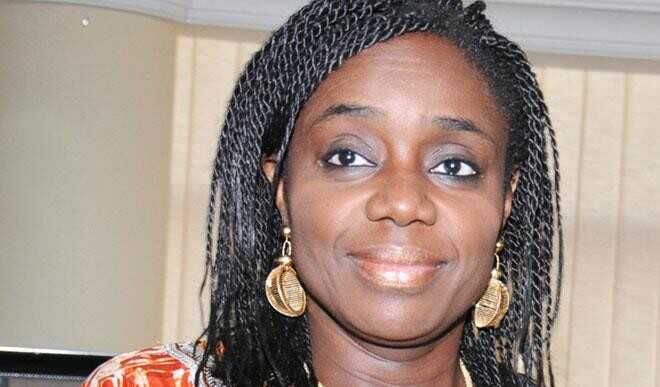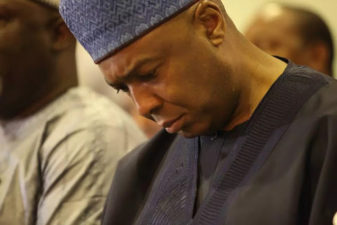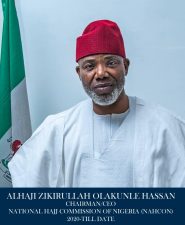By Florence Israel, Abuja
“The Government is investing in massive domestic fertilizer production, making it cheaper to grow the food we need and raw materials to support moribund industries. We are also investing in rail – making it quicker and cheaper to get produce across the country. Our pilot programme has shown that we can reduce the cost of food if we can move it across the country faster.”
The Minister of Finance, Mrs Kemi Adeosun, has said that the administration of President Muhammadu Buhari is building a productive Nigerian economy for a sustainable and inclusive economic growth.
According to a statement issued and signed by the Director of Information in the Federal Minister of Finance, Mr. Salisu Na’inna Dambatta copy of which was sent to The DEFENDER, the Finance Minister said this while speaking on Sunday at “The Platform” hosted by the Covenant Christian Centre, Lagos.
She said that the Federal Government was calling for greater focus on the productive sectors of the economy to drive inclusive and sustainable economic growth in the country.
Mrs Kemi Adeosun said: “While mistakes have been made in the past, this administration is looking ahead and laying the ground work to build a resilient economy that is not vulnerable to boom and bust cycles.”
Other speakers at the event included, the Vice President, Professor Yemi Osinbajo, former Governor of Anambra State, Peter Obi, Professor of Economics at Ahmadu Bello University, Professor Abdulraheem Garba, and Chief Economist and Financial Analyst PWC, Andrew Nevin. Others were Prince Bimbo Olashore and Mrs Nimi Akinkugbe.
The statement related the Minister’s acknowledgement the overly reliance of government revenue on oil and had reiterated her call for situation whereby oil revenue must be used to develop and diversify the economy and not just sustain consumption.
“While oil proceeds have represented between 50 percent and 70 percent of Federal Government revenue over the past three years, it has contributed 10 percent or less to Gross Domestic Product (GDP) in the same period,” Mrs Adeosun said, emphasising that “we must change our growth model to deliver inclusive and sustainable growth by broadening the range of our economic activities in the production and distribution of goods and services.”
According to Salisu Dambatta, the Minister hinted about government wanting to create jobs for the people and it must look beyond the extractive industry to do so.
She said, “We must invest across the value chain in agriculture, construction, manufacturing and trade to localise production, processing and distribution. This will create jobs, drive innovation and support knowledge transfer to local businesses.”
Adeosun said, “Our focus is on activities that are value adding to the economy to ensure long-term stability. The infrastructure that we build to facilitate power and transportation will be vital in achieving diversification and economic growth. We are focused on addressing the challenges we face to deliver services to our people.
“The Government is investing in massive domestic fertilizer production, making it cheaper to grow the food we need and raw materials to support moribund industries. We are also investing in rail – making it quicker and cheaper to get produce across the country. Our pilot programme has shown that we can reduce the cost of food if we can move it across the country faster,” said Mrs Adeosun.
The Minister noted that Small and Medium Enterprises (SMEs) were critical to broadening the government’s revenue base and so that doing business with ease was a major thing the government was working on in favour of the SMEs.
“We will increase our support for innovation and entrepreneurship. Our people are our greatest assets and we must invest in them to build human capital.
“We have an unacceptably low level of non-oil revenue, and much of that is driven by a failure to collect tax revenues. With a tax to GDP ratio of only 6%, one of the lowest levels in the world, we have a lot of work to do if we are going to build a sustainable revenue base that will deliver inclusive growth.
“We are going to focus on tax in 2017. We will improve our tax to GDP ratio, block leakages and increase compliance. We would also introduce taxes on luxury items and excise duties on tobacco and alcohol,” she said.
The Minister explained to the audience that: “More diversified economy would reduce revenue volatility in the long term, encourage more inclusive growth and reduce inequality. With increased Government revenue, we can invest further and faster, delivering further improvements in 2017 and beyond.”




